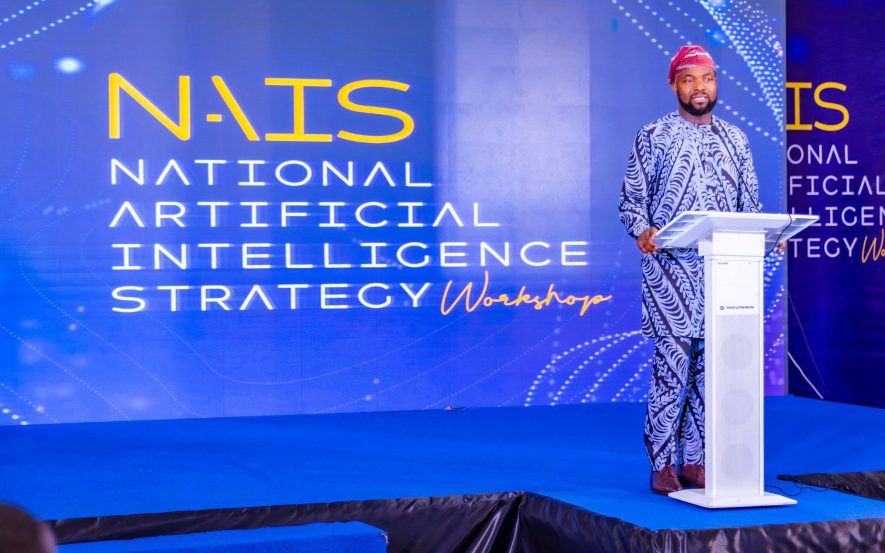Nigerian AI startups are facing funding challenges, with total funding at $47.3 million for 34 startups as of June 2025. It seems likely that this funding is insufficient, averaging $1.39 million per startup, compared to higher averages in Kenya ($12.8 million) and Tunisia ($27.2 million). The evidence leans toward limited government and private support, with initiatives like the AI Fund (up to $12,878 per startup) seen as small relative to needs. There is controversy around whether current funding meets the ecosystem’s growth potential, with reports highlighting constraints and infrastructure gaps.
Nigerian AI startups are likely not attracting enough funding to fully meet their growth needs. As of June 2025, research shows they have raised a total of $47.3 million across 34 startups, averaging about $1.39 million per startup. This is significantly less compared to other African countries like Kenya, where startups average $12.8 million each, and Tunisia, at $27.2 million per startup. While there are initiatives like the AI Fund, offering up to $12,878 per startup, and the Nigeria Artificial Intelligence Research Scheme, providing about $6,439 per consortium, these amounts seem small for scaling AI ventures. Reports also mention funding constraints and infrastructure challenges, suggesting that the current funding might not be sufficient for Nigeria’s large and promising AI ecosystem.
Funding Landscape for Nigerian AI Startups
The question of whether Nigerian AI startups are attracting enough funding is complex, given the rapid growth of the AI sector and the unique challenges faced by African tech ecosystems. As of Tuesday, July 1, 2025, available data and expert insights suggest that while there is some funding, it may not be sufficient to meet the needs of the ecosystem, particularly when compared to regional peers and the potential of Nigeria’s market. This note provides a detailed analysis, drawing on recent reports, funding initiatives, and comparative data to assess the funding landscape.
Research indicates that Nigerian AI startups have raised a total of $47.3 million across 34 startups as of June 2025, according to a report from StartupList Africa Blog: This averages to approximately $1.39 million per startup, which is notably lower than other African countries. For comparison, Kenya has raised $242.3 million across 19 AI startups, averaging $12.8 million per startup, while Tunisia has secured $244.4 million for 9 startups, averaging $27.2 million each. This disparity highlights Nigeria’s relatively lower funding per startup, despite being Africa’s largest economy with a thriving tech ecosystem.Specific funding initiatives include government-led efforts and private sector support. The AI Fund, launched in collaboration with Google and the National Centre for Artificial Intelligence and Robotics (NCAIR), provides up to ₦10 million (approximately $12,878, using an exchange rate of 1 USD = 776.5 NGN) per startup for 10 selected ventures, totaling N100 million (about $128,780). Additionally, the Nigeria Artificial Intelligence Research Scheme, announced in June 2025, offers ₦5 million (approximately $6,439) to 45 consortia of startups and researchers, aiming to foster innovation across sectors like agriculture, education, and healthcare. Recent X posts also highlight additional support, such as Google providing $350,000 in cloud credits to Nigerian and Kenyan AI startups and the Llama Impact Accelerator Program offering equity-free funding for early-stage startups.
Comparative AnalysisTo assess whether the funding is “enough,” a comparative table can illustrate the funding per startup across selected African countries:
| Country | Number of AI Startups | Total Funding (USD Million) | Average Funding per Startup (USD Million) |
|---|---|---|---|
| Nigeria | 34 | 47.3 | 1.39 |
| Kenya | 19 | 242.3 | 12.8 |
| Tunisia | 9 | 244.4 | 27.2 |
| Egypt | 44 | 83.4 | 1.9 |
| South Africa | 31 | 150.4 | 4.85 |
This table, derived from StartupList Africa Blog, shows Nigeria lagging behind in average funding per startup, particularly when compared to Kenya and Tunisia. This suggests that Nigerian AI startups may not be attracting sufficient capital to scale at the same rate as their regional counterparts.
Challenges and Constraints
Reports consistently highlight funding as a major challenge for Nigerian AI startups. The NCAIR website notes that “Nigerian startups often face funding constraints and lack the necessary resources to scale their solutions”, emphasizing the need for initiatives like the AI Fund. Businessday NG also identifies “limited funding, inadequate infrastructure, and a skills gap” as barriers to AI adoption in Nigeria. Tech in Africa further reports a 51% drop in funding for Nigerian startups in the first half of 2024, reflecting a cautious investment climate. These constraints suggest that the current funding levels may not be adequate to support the ecosystem’s growth, especially given Nigeria’s large population and tech-savvy youth.
Recent Developments and Potential
Despite these challenges, recent developments indicate growing interest. The Nigerian government, in collaboration with the Gates Foundation, signed a $7.5 million agreement in June 2025 to build the Nigerian AI Scaling Hub, aiming to scale AI applications in health, education, and agriculture. While this is not direct startup funding, it could create an enabling environment. Additionally, X posts from June 2025 mention Google backing six Nigerian AI startups in its Africa accelerator cohort, and the Llama Impact Accelerator Program offering support, which could attract more investment. However, these initiatives, while promising, are relatively small in scale compared to the funding needs for scaling AI ventures.
Expert Opinions and Ecosystem Needs
The evidence leans toward funding being insufficient, with reports like Businessday NG calling for “collaborations between governments, private companies, and international organisations to provide the necessary resources”. The low average funding per startup ($1.39 million) compared to global benchmarks for AI startups, which often require significant capital for computing resources and talent, further supports this view. For instance, global AI startups like those in Silicon Valley often raise tens of millions in Series A rounds, which is far beyond the current averages in Nigeria.
Conclusion
In conclusion, it seems likely that Nigerian AI startups are not attracting enough funding to fully realize their potential. With total funding at $47.3 million for 34 startups as of June 2025, averaging $1.39 million per startup, and facing challenges like funding constraints and infrastructure gaps, the current support may be inadequate. While recent initiatives like the AI Scaling Hub and Google’s accelerator programs offer hope, they are not yet sufficient to bridge the gap, especially when compared to regional peers. Future growth will likely depend on increased private investment, international partnerships, and improved infrastructure to attract more substantial funding.




